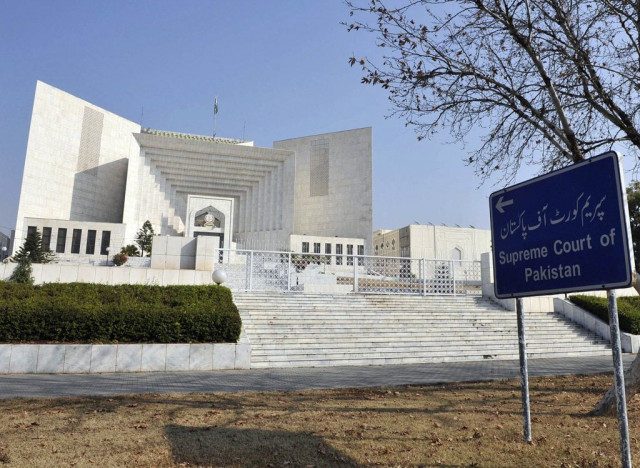Marriage bill: Hindus wary of Supreme Court verdict’s implementation
Apex court has asked govt to bring draft bill before parliamentary body within two weeks.

SCRM Coordinator Radha Bheel said Article 25 of the Constitution talks about legal protection to every citizen irrespective of religious identity but they had been completely ignored by the state. PHOTO: AFP
Hindu representatives have expressed satisfaction over the Supreme Court (SC) verdict regarding the Hindu marriage bill as well as protection of minority rights in the country but fear the government may drag its feet over the orders’ implementation.
They appealed to the government to take immediate steps for implementing the apex court’s verdict.
The court had expressed anger at the delay in the legislation of Hindu marriage bill and asked the government to ensure that the draft of the proposed bill was laid before the concerned parliamentary committee for approval within two weeks.
In addition, in a recent hearing, the SC also asked the provincial governments to take steps for protecting rights of minorities.
Pakistan Hindu Council Patron-in-Chief Dr Ramesh Kumar Vankwani told The Express Tribune that the SC gave its verdict on his application as he had been following the case for a long time.
“The SC has asked me to meet and apprise the four provincial chief ministers, chief secretaries and inspectors general of police about the problems that our community is facing,” he said.

“I am going to hold a meeting with the Khyber-Pakhtunkhwa (K-P) government tomorrow to discuss matters relating to the protection of holy places as per directions of the SC,” Vankwani said on Sunday.
“The SC also instructed me to submit the minutes of the meetings.” he remarked.
While talking to The Express Tribune, Scheduled Caste Rights Movement Pakistan (SCRM) Chairperson Ramesh Jaipal said, “we think that it is still an uphill task [to get the bill passed], but at last our courts have taken an initiative in this regard and [have] asked the government to make it possible.”
“We appeal to the government and representatives of political parties to play their role in the [verdict’s] implementation,” he said.
Jaipal added that they still had no idea whether the government would be able to approve the bill or not.
“We have been desperately waiting for the passage of the bill for the last many years,” he said.
“The onus is now on the government whether they do anything positive and the actions of the government would also reflect their resolve to work for the minorities,” Jaipal said.
It is a dilemma that successive governments have failed to give minorities their due rights despite making tall claims, he said.
Perhaps, the ruling elite are unable to take any step as any such step might deprive them of votes of the majority population, Jaipal added.
The Hindu Marriage Registration Bill was presented in the National Assembly in 2011 and again in 2014 and almost all political parties had pledged to pass it, but no progress has been made since, he remarked.
The bill was presented to the Ministry of Minority Affairs in 2008 and later the National Commission on the Status of Women (NCSW) took up the draft and referred it to the Ministry of Human Rights in 2011, Jaipal said.
While appreciating the SC verdict, SCRM President Guru Sukh Dev Ji said the region was known for its cultural and religious diversity and it was imperative to give minorities their due rights for peaceful coexistence as Mughal emperor Akbar did.
Hindu couples face difficulties in getting their marriages registered as per Hindu customs, Dev Ji said.
SCRM Coordinator Radha Bheel said Article 25 of the Constitution talks about legal protection to every citizen irrespective of religious identity but they had been completely ignored by the state.
Published in The Express Tribune, January 19th, 2015.



















COMMENTS
Comments are moderated and generally will be posted if they are on-topic and not abusive.
For more information, please see our Comments FAQ